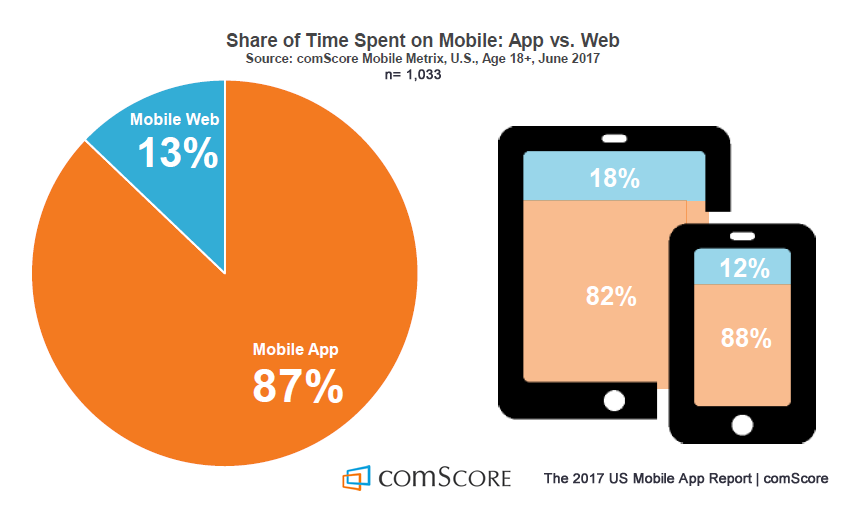In-application marketing has grown by leaps and bounds, thanks to the prevalence of mobile devices. With more people utilizing gadgets connected to the internet, companies are now spending more of their marketing budget on mobile web advertising.
One strategy on the forefront of mobile advertising is in-app marketing. As the name implies, in-app marketing is any campaign or message that’s specifically designed to appear within a mobile application while the consumer is using the app. Unlike emails or push notifications, which engage the consumer outside of the company’s app, in-app ads take advantage of the moment and hook customers in real-time.
Digital marketing strategies, like geo-targeting, are still important but brands and marketers believe that in-app advertising is the way forward. As a matter of fact, it has been estimated that global in-app revenue will reach $189 billion by 2020.
Worldwide in-app advertising and app store revenues of mobile apps and games in 2015 and 2020

[Graphic via Statista]
Aside from the fact that in-app marketing is a money-maker, there are also other benefits to utilizing this strategy.
Benefits of Using In-App Marketing
Consumers Spend A Lot of Time on Apps
Brands should take advantage of the fact that the majority of smartphone users are spending a lot of time on apps. According to a 2017 US Mobile App Report, people are spending about 87 percent of their time online on mobile apps compared to just 13 percent on the Web. This gives companies that use in-app ads an opportunity to focus on a large market, boost their brand visibility, and improve lead generation and conversion.

Higher Click-Through Rates
Another advantage in-app ads have over mobile ads is their higher click-through rates (CTRs). As it stands, CTRs for mobile web ads is at 0.23 percent while in-app ads are at 0.58 percent. In-app ads also perform 11.4 times better than conventional banner ads. This means that in-app advertisements not only raises lead generation numbers, they also help capture and convert these leads.
More Focused Targeting
Advertisements displayed in the brand’s application are designed within the app’s context, making them look natural and more organic. Many apps also opt for interactive formats, which gives advertisers the option to choose when it will be shown. This ensures a seamless transition for users. In contrast, other types of mobile advertisements, particularly pop-ups, can be quite disruptive. They interrupt the prospective consumer and could cause them to be annoyed, thereby dissuading them from making a positive decision.
Marketing inside company apps also gives advertisers a specific view of their target market due to geo-location data and the apps’ capacity to pull in the exact demographics. This increases the chances that the audience reached is aligned closely with the company’s advertising and marketing efforts. Highly targeted marketing also means that less money is wasted on consumers who are unlikely to make a purchase via the ad.
Ads are More Memorable
Research has shown that in-app ads are more effective because they’re more memorable when seen on the application. This is due to users being more engaged in the app right from the start, particularly in the social network and gaming niches. The personal nature of mobile gadgets, which people use during their leisure time, also gives people a more positive attitude towards brands they see advertising in-app.

With in-app marketing, marketers can move away from generalized ads and instead focus on ads that are designed specifically for the brand’s demographic. This marketing strategy also reaches a lot of people in a very short time, thereby giving brands more reach and higher ROI.
[Featured image via Pixabay]
